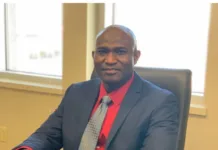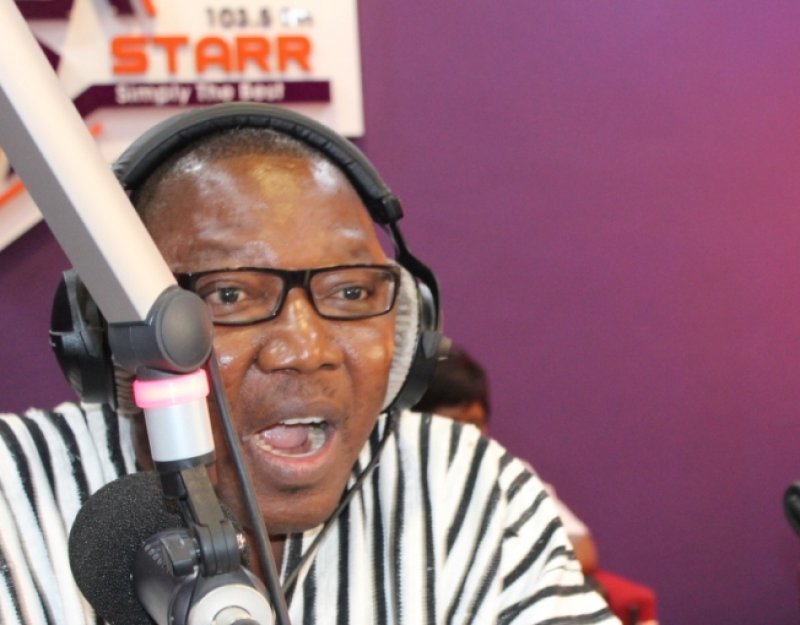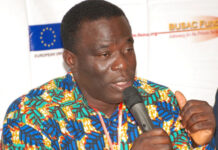
When you do well, nobody can take your shine away from you. And that’s the way it should always be.
Kudos to our President Nana Akufo-Addo, President of the Republic of Ghana (POTROG) for conducting himself with dignity and delivering his speech with confidence, clarity and conviction.
A standing ovation for his cultured manner and statesmanship at the start of his new career as first gentleman of our beloved motherland.
A good public speaker conveys his thoughts in a manner that
1. brings them to life,
2. captures and retains the attention of his audience,
3. leaves a positive and lasting impression with his
4. key message(s) and
5. calls people to action.
On all these, our President did a good job and deserves all the applause.
As a writer, culture and public communications professional, my admiration for The President aka The Law is profound.
This is why I am disturbed by the local backlash and international media focus on what takes away from an altogether splendid national ceremony: the speech-writer and plagiarism.
He has apologized so he has been pardoned.
All speech-writers or hopefuls must know, however, that in times of damage, we must not only manage but learn, improve and go forth with courage.
Like the work of a good plastic surgeon, electrician, maternity nurse or mortician, speech-writing is not for everyone. It is as easy as ABC for some yet as worrisome as Woyome for most.
Key things to focus on are 1. The aims and objectives of the speech; what the speaker seeks to achieve with his brief impartation
2. the key messages; what the speaker seeks to convey and how to navigate them to achieve his aims and objectives.
Original thought is urgently required here. In its absence, however, borrowing from others is not a crime so long as credit is given where it is due. Most great achievements in scholarship, inventions and life itself are the build-up and continuation of the grey matter, blood and toil of generations before us. It is important, however, that we do not posit the toil and original contribution of others, no matter how little or historic, as our own.
Attribution is an act of courtesy, scholarship and respect for the original author or speaker. If a speechwriter knows the source, it is good to give credit especially when the excerpt goes beyond a short phrase or two.
If he does not , it is prudent to re-write and imbue it with personal style and context; in his own words.
When in doubt, leave it out.
Speech-writing for statesmen, captains of industry and royals requires wordsmiths with the ability to synthesize good ideas and to generate or transform
1. Original thought
2. Scripted in a style that best presents the import and spirit of the message
3. Suits the speaker’s personality
4. Projects the speaker’s office and ethos
5. Serves and compels the target audience to better thinking
6. Is appropriate for the occasion.
The world’s greatest speeches are mostly ones of
1. Originality
2. Strong conviction
3. Occasional spice with a scholarly excerpt or two including attributed quotes from greater men (for no one chooses to quote lesser men unless for 1. Populism or 2. comic relief).
The laws on intellectual property and public domain, whilst informative, do not prevent a speechwriter from making their best effort to avoid plagiarism. The hired writer who fails to recognize this from the get go chips away at the integrity of his employer as he consciously or otherwise presents his office as one that stealthily showcases the toil and thoughts of others as their own.
Our employers may be good speech writers themselves but as Hilaire Belloc succinctly put it
“Lord Finchley tried to mend the Electric Light ….
It struck him dead: And serve him right!
It is the business of the wealthy man
To give employment to the artisan.”
In each of the recent African instances, the speech-makers may have done a better job writing themselves, for an artisan who takes short cuts leaves danger ahead for the wealthy man.
It behoves every one of us speechwriters, media, culture, public affairs and communications professionals to read from more sources everywhere especially our own forebears. Then we must craft each verse as an important sound bite to help chart the chosen course and advance the cause of our employer(s).
More originality, less imitation:
But if we must ever feel the need to lift or imitate another’s verses, we must never forget nor be shy to state it. God bless; nothing less.
The writer King Kwasi Kyei Darkwah aka His Royal Blackness is a veteran multiple-award-winning broadcaster, communications, culture and tourism professional.
He holds a Master of Arts Degree in Film & Television Production from London Metropolitan University.




